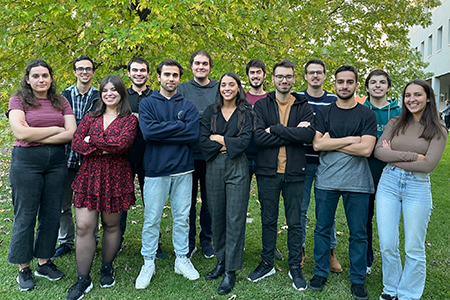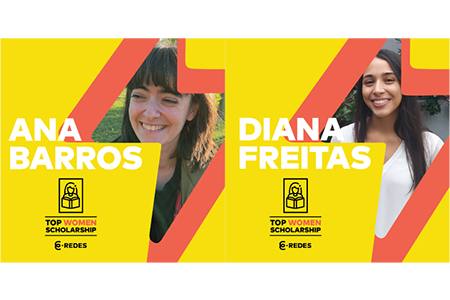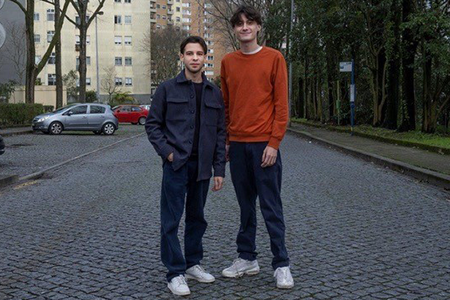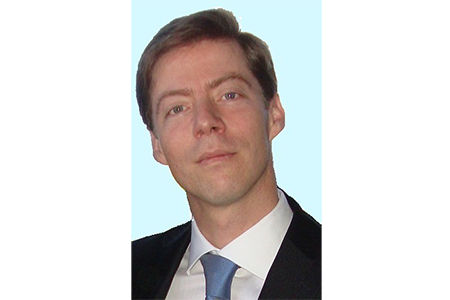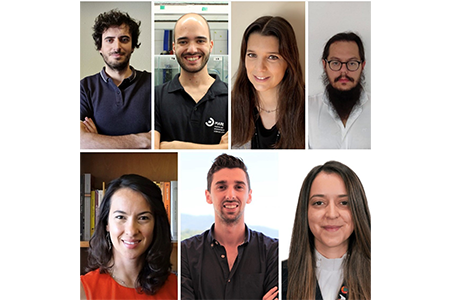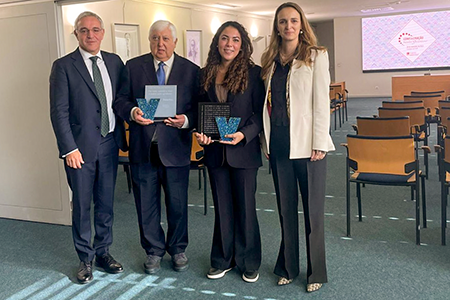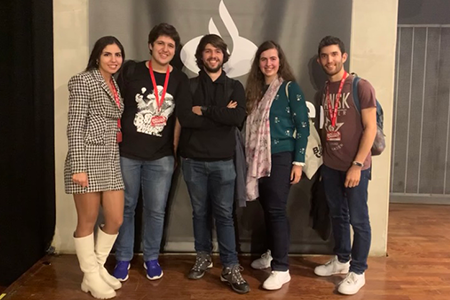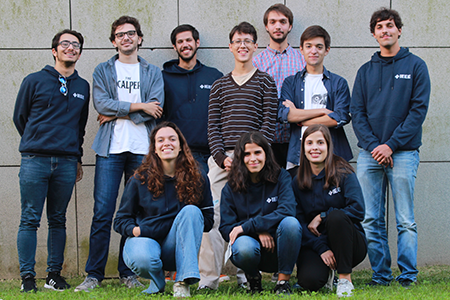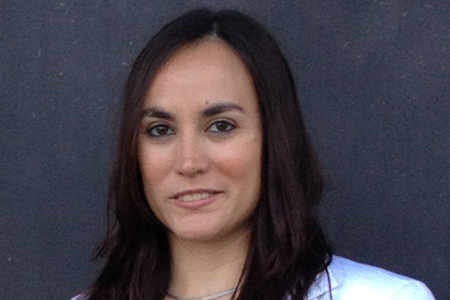IEEE UP Student Branch is once again one of the winners of the IEEE Regional Exemplary Student Branch Award.
Every year the IEEE Portugal Section awards the members that have stood out the most for their valuable contribution to its activities and mission. These awards measure and recognise the impact of its members during the previous year. In the 2022 edition the IEEE Student Branch of the University of Porto receives the IEEE Regional Exemplary Student Branch Award, a recognition that has been repeated due to the consistent dedication of its constituents.
Through the numerous activities it promotes, this student group was recognized as having an exemplary performance, offering its members and the community where they are inserted, numerous opportunities for development of technical skills and personal development through its various groups: Computer Society, Robotics and Automation Society, Engineering in Medicine and Biology Society, Aerospace and Electronic Systems Society and Women in Engineering.
The current President of the student group, Manuel Cerqueira da Silva, tells us that “as a member that contributed to the achievement of this award and as current president I feel an enormous pride in seeing our work recognised. For me, receiving this award is special because it is proof that with our commitment, even in the most difficult moments, we managed to maintain the level of excellence. Thus, I intend to continue this project, strengthening the connection with other nuclei and associations of the University of Porto in order to reach higher levels and contribute to the student community.”
It is also with great pride that Guilherme Barcelos, responsible for the Aerospace and Electronic Systems Society, received the news: “When I found out that we received the award for another year in a row I was very happy, but at the same time I felt that this was expected. Our core has always maintained its level of excellence since many years, we went through the pandemic and we are still here strong and full of energy to do even more. So with the work done by the boards, plus the commitment of our members, this award becomes well deserved. As a member for years, it makes me very happy to see our cluster shine and bring out the best in all of engineering!”
In addition to this group recognition, several other awards were given this year, namely to computer and computer engineering graduates, José Miguel Simões with the Outstanding Student Member Award, in recognition of exemplary performance as Student Section Representative, and Pedro Simeão Carvalho, with the Special Recognition Award, in recognition of exemplary performance as Member of the IEEE Portugal Section Executive Committee from 2016 to 2021.
José Miguel Simões, recent M.EIC graduate, winner of the Outstanding Student Member Award, shares what seems to be the general feeling of those who are part of this group:
“I usually say that joining IEEE was the best decision of my entire university life. It’s not a lie. I know it more and more. I wouldn’t be who I am today if I hadn’t done it. In IEEE, the goal was never the awards. The goal was never to be better than the others, but always to be better than myself, always to help those who were, and are, with me to reach their highest peak. The goal has always been personal overcoming, combined with providing a multitude of activities to an entire academic community.”
+ More info on the activities of this nucleus at: https://ieee.fe.up.pt/
